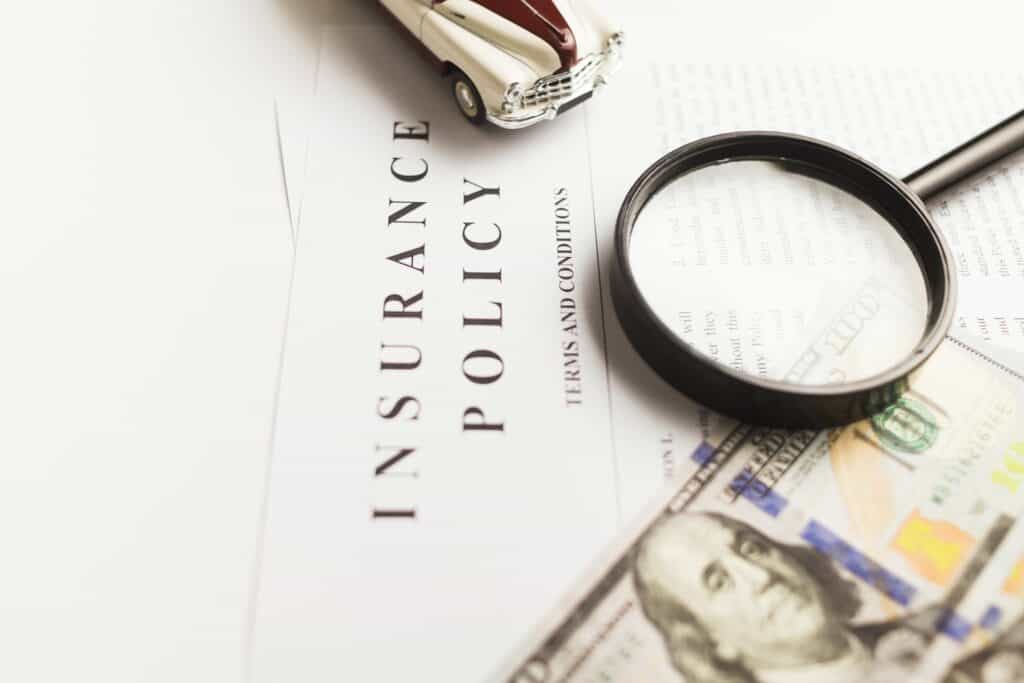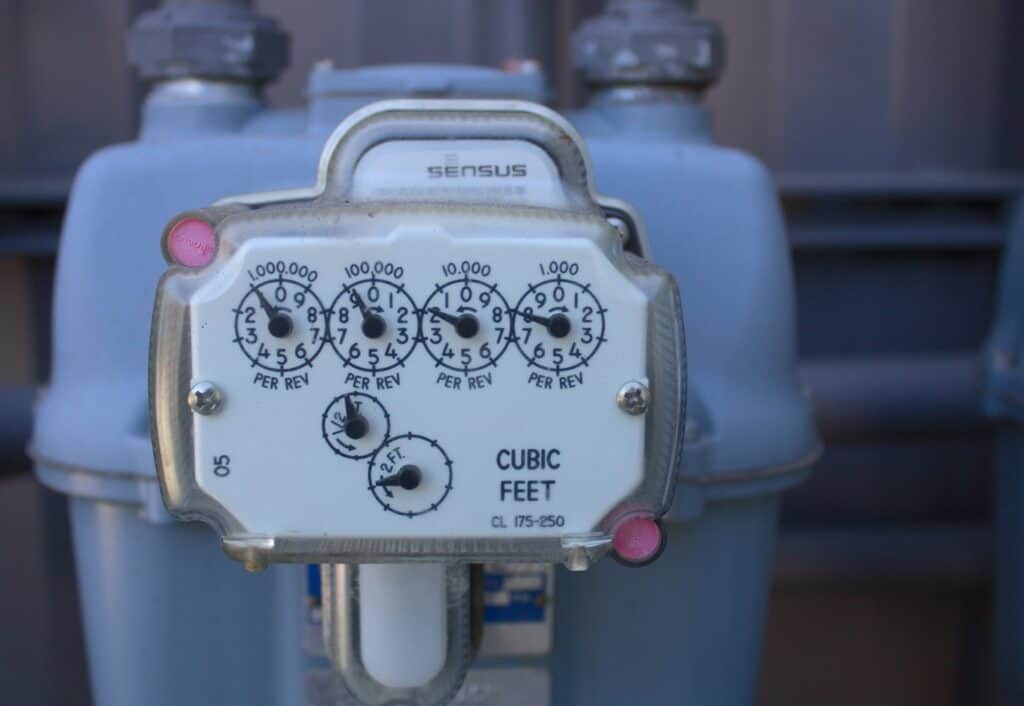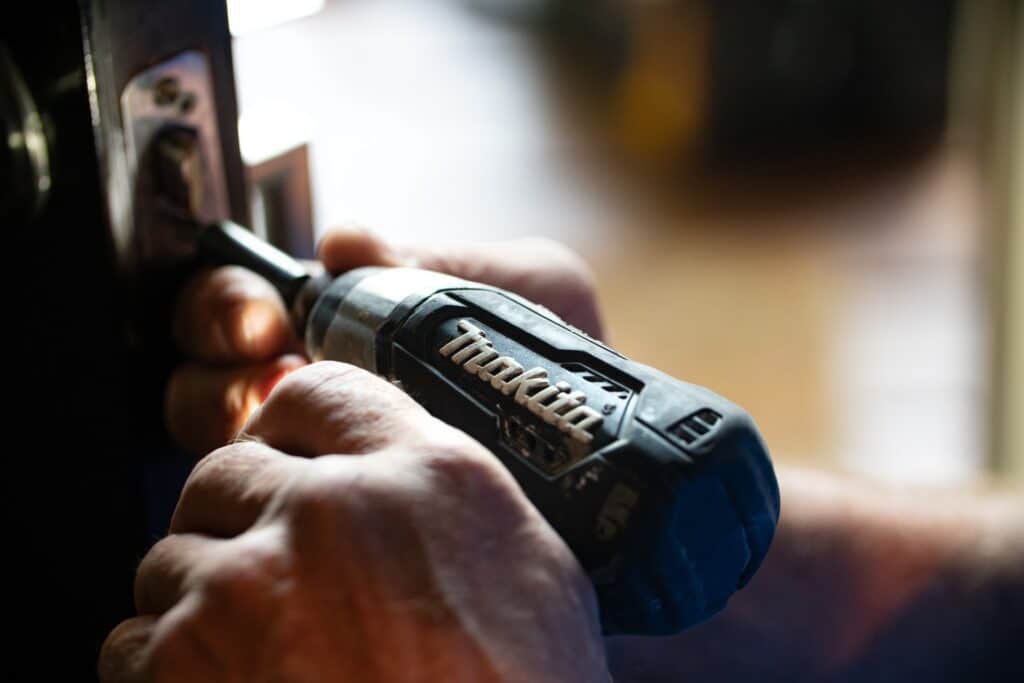Rental properties come with a lot of expenses. From purchasing the property to managing the property and then selling the property, each stage in your journey comes with its own set of expenses. Many of these expenses are common to almost all properties while others are less common and only apply to specific circumstances.
Whether you already own a rental property or are looking to purchase a property, this guide will help you understand all of the potential expenses you might find along the way. As a real estate investor, it’s important to understand all of the potential expenses so you can ensure there aren’t any surprises. You can use this list of expenses to budget for your purchase or estimate your net operating income.
Let’s walk through each stage of buying, owning, and selling a rental property and cover a comprehensive list of expenses for each stage.
Expenses When Purchasing A Rental Property
Whether you’re getting ready to make an offer for a new rental property or you’re just curious how much money you need to start investing in real estate, you’ll want to gauge the upfront costs. These costs are one-time expenses but need to be funded either before or when you close on the purchase.
Most of these costs are non-negotiable, but there is still some wiggle room in the down payment, due diligence, and business setup. While it may be tempting to save money on due diligence, you may find this costs you more in the long run. The same is true for setting up a business; you want to protect your property and yourself as soon as you own the property.
1. Down Payment
You’ll need a sizeable down payment for a rental property. While you can get a loan for your primary residence with 3-5% down, a loan for a rental property typically requires a 20-30% down payment. This is because rental properties represent a higher risk to the bank.
If 20-30% seems daunting, there are ways to get a lower down payment. For instance, you can purchase a property as a primary residence with a lower down payment and then convert it to a rental.
Typical Amount: 20-30% of the purchase price of the property
Frequency: One time, due at closing
2. Earnest Money
When you decide to purchase a specific property, you put in earnest money to start the purchase process. It’s a sign to the seller that you’re committed to the purchase. This money is held in escrow until closing and then contributes toward your down payment. If the purchase falls through, the earnest money is either given to the buyer (if the seller is the cause) or the seller (if the buyer is the cause), though the exact terms can be defined in a letter of intent.
Typical Amount: 1% of the purchase price of the property
Frequency: One time, paid at the start of the purchase process
3. Appraisal Fee
Before the bank approves your loan, you need to get an appraisal to determine the value of the property. The bank will only approve the loan if they are lending less than or equal to the appraised value. The appraisal is all about protecting the bank. Nonetheless, it’s your responsibility to pay for it.
Typical Amount: $300-$600 for single-family home; several thousand for multifamily
Frequency: One time, paid before closing
4. Inspection Fee
Inspections are there to protect you in the purchase. A good inspector will identify any issues with the property and provide you with an itemized list including pictures or video. This is not the time to try to save money. You want a thorough inspector — wouldn’t you rather have an extensive list with even minor issues than a list that’s missing a major item?
If you’re investing in multifamily properties, you should ensure your inspector goes through every single unit in addition to a general property inspection.
Typical Amount: $300-$500 for single-family homes depending on size and location; $50-$200 per unit for multifamily
Frequency: One time, paid before closing
5. Closing Costs
Lenders have a large list of itemized expenses you’ll pay when closing on the loan. These are all lumped under the umbrella of closing costs. Typical closing costs include underwriting fees, application fees, origination fees, title insurance, and many others.
Typical Amount: 3-5% of the loan amount
Frequency: One time, paid at closing
6. Mortgage Points
You may choose to purchase mortgage points to lower the interest rate of your loan. This is completely optional and you can choose how many points to purchase. Mortgage points cost 1% of the loan amount per point.
Typical Amount: 1% of the loan amount per point; $0 to thousands
Frequency: One time, paid at closing
7. Lease Audit
If you’re investing in multifamily real estate, you’ll want to perform a lease audit. This audit digs into the lease agreements and status for every tenant so you get a picture of any issues or delinquencies. This can be compared with the current owner’s income statements to find any discrepancies.
Typical Amount: $50-$100 per tenant
Frequency: One time, paid before closing
8. Market Report
You may want to get a market report to help you price your rent appropriately. A market report looks at the state of the rental market in your area and provides a competitive analysis of comparable rental units.
Typical Amount: $500-$1000
Frequency: One time, paid before closing; then periodically
9. Legal Fees
Depending on your situation, you may need legal help setting up your rental property. This can range from setting up an LLC, creating lease agreements and other contracts, or creating partnership agreements if you’re investing with other people. Because of the range of needs, legal fees can vary tremendously.
Typical Amount: Hundreds to thousands or tens of thousands
Frequency: One time for setting up your real estate business, then as needed
10. LLC Setup Costs
Setting up an LLC is one of the best ways to protect your rental property and yourself. LLCs create a shield against personal liability if used correctly. You can set up an LLC in your state easily, typically online through your state’s Secretary Of State. In most cases, you can do this by yourself but may choose to have a lawyer set up an LLC for you.
Typical Amount: $50-$500 depending on your state
Frequency: One time before closing
11. Reserves
Cash reserves are another great way to protect your rental property from periods of low cash flow. You can choose to fund however much you want for this, but 1-3 months of operating expenses will provide you with a good buffer. Your reserves should be enough to cover any periods of vacancy.
Some banks will require that you have reserves before authorizing a loan. While this is uncommon for single-family rental properties, it is almost always required when purchasing multifamily real estate. Your bank will tell you their exact requirements, but it typically ranges between 1 and 3 months of operating expenses.
Typical Amount: 3-6 months operating expenses
Frequency: Funded once before closing, maintained throughout the ownership of the property
Expenses When Managing A Rental Property
How much does it cost to run a rental property? That answer varies greatly and depends on many factors including property prices, interest rates, local labor markets, etc.
It also depends on how much work you want to put in yourself. You can be the landlord and manage the property yourself or you can handle maintenance and repairs. Putting in your own sweat equity can save you quite a bit of money, however, you should be cautious that your repairs are high quality and up to local building codes. If you’re unsure of your abilities, it’s best to hire a contractor.
The downside to putting in the work yourself is the cost of your time. In effect, you’re purchasing short-term money with your time. If you want to grow your real estate portfolio, you may find it best to hire out these tasks so you can focus on growth like finding new investment opportunities or raising capital.
Whatever your situation, this section will walk through many of the expenses that you might encounter while operating a rental property.
12. Property Management
Managing a rental property is hard work and requires a large time commitment. Many people opt to hire a property manager to handle the day-to-day operations of the rental property to free up their time or to provide a professional front to their real estate investments.
Property managers are typically compensated through a portion of the net income from rents collected. They may also charge various fees for advertising, tenant screening, placement fees, inspection fees, and various others. You must do your due diligence when hiring a property manager to ensure you know what your real costs will be.
Typical Amount: 8-12% of net income plus extra fixed fees
Frequency: Monthly
13. Insurance

Don’t skimp on the insurance. You want to ensure you’re covered in case something detrimental happens to your property. You also want to know you’re covered if someone injures themselves on your property. Multiple layers of insurance can help protect your property and protect you against personal liability.
The most basic form of insurance you need is property insurance. It’s basically the same as your homeowner’s insurance but is tailored to the property being used as a rental and is about 25% more expensive. It protects the building against any damages. Be sure to review your policy for any addendums you may need to include. Natural disasters, for example, may not be covered with the basic insurance in your area.
Property insurance also provides some personal liability protection. Review your policy to see what the limit is. If you don’t feel it’s high enough, you can purchase umbrella insurance. Umbrella insurance is solely designed to add more protection against personal liability.
Typical Amount: $1500 per year and up depending on the size of the property
Frequency: Typically yearly, but can be semi-yearly, quarterly, or monthly
14. Property Tax
Every state imposes some level of property tax. The property tax rate is set by the county the property is in and ranges from 0.28% of the assessed value of the property up to 2.49%. RocketMortgage has a handy table that shows the property tax rates for every state.
Typical Amount: 0.28%-2.49% of the assessed value of the property
Frequency: Yearly, but can be paid in installments
15. Utilities

Depending on your rental agreements, you may pay the utilities for the property or your tenants may pay the utilities. You may even have an arrangement where you pay the utilities then charge them to your tenants through rental utility buybacks. Or, if you have a multifamily property, you may have some common areas and split the utilities with your tenants. There are a lot of different ways to handle utilities.
Utilities include anything from electricity, natural gas, internet, cable, and even garbage removal.
Typical Amount: $0 to hundreds or thousands depending on the size of your property
Frequency: Monthly
16. Repairs/Improvements
You’ll need to maintain your rental property and address any issues that need repairs. You may even want to make improvements through remodeling, adding structures, adding a pool, or any other changes to your property.
This expense category is pretty broad and covers everything from plumbing, paint, a new roof, updating units, drywall repair, furnace repair, flooring, and much more. Because it is so broad, it can be difficult to budget.
The balance has a great resource on estimating home repair costs and suggests 1% of the home’s value per year. For larger improvements, you should budget for those independently based on estimates you receive from contractors.
Typical Amount: 1% of the property’s value for general maintenance, thousands to tens of thousands for major improvements
Frequency: Estimated every year; paid as needed
17. Advertising
When you have a vacant unit, you need to advertise to potential tenants. Advertising can take many forms from putting out for-rent signs on your property, taking an ad in the local paper, posting a listing on general listing sites like craigslist or Facebook, or posting on rental listing sites like apartments.com or Zillow.
If you’re using a property manager, they can handle marketing your available unit and typically charge a flat fee.
Typical Amount: $0 for posting on some platforms, $10-$50 typical for paid platforms
Frequency: Whenever a unit is vacant; typically every 1-2 years per unit
18. Tenant Screening
Before you sign a rental agreement with a new tenant, you should ensure the tenant is a good fit for you. You’ll get information on the prospective tenant’s employment history, credit, rental history, and criminal record. This way, you can eliminate anyone who doesn’t meet your criteria for renting and prevent some major headaches down the road.
Many landlords choose to pass this cost on to the prospective tenants through application fees. This puts the financial responsibility on any potential poor tenants who may choose not to apply after reviewing your requirements.
Typical Amount: $25 to $75 per applicant; may be reimbursed by the applicant
Frequency: When renting a vacant unit
19. Lawncare and Property Maintenance
When you own a property, you own the whole property including the land surrounding it. If you want to attract great tenants, you need to keep the exterior surrounding the property in good condition. This includes everything from mowing the lawn, pruning shrubs, removing tree branches, fertilizing, weed control, and many other tasks.
There are a lot of variables in the landscape of your property including property size, how much grass vs hardscape, how many trees or shrubs, what level of care you desire, etc. This creates a large range in potential costs for maintaining the landscape of your property. You should get an estimate to get a more accurate picture of your costs.
Typical Amount: $100-$200 per month for general lawn care; hundreds to thousands for one-time needs
Frequency: As needed, but some services have monthly plans
20. Legal Fees
A lawyer may be necessary to handle a variety of issues that arise in your rental property. You might need help evicting a tenant or maybe you’re being sued for being negligent in the property maintenance. Or your needs may be more simple like creating or reviewing rental contracts.
You want a lawyer to represent you in any lawsuits, but there are cheaper alternatives for the smaller tasks. For example, online services like rocketlawyer.com or eforms.com can help you create contracts.
Lawyers most often bill you per hour of their time which can be hundreds of dollars per hour. The cost for any specific situation is entirely dependent on how much of the lawyer’s time it takes.
Typical Amount: Hundreds to thousands or tens of thousands depending on the situation
Frequency: As needed
21. Vacancy Costs
While vacancies aren’t technically an expense you pay, they do cost you rental income. If you’re renting a single-family home, this can mean you need to cover the mortgage payment until you can find another tenant. You’ll also have to cover any utilities while the unit is vacant.
You can reasonably expect to have at least a few weeks of vacancy between renters, but it can be more if you choose to do any work to the property when it is vacant.
Typical Amount: 10% of your yearly rental income
Frequency: Whenever a tenant moves out
22. Turnover Costs
When your rental unit does become vacant, you’ll have some costs associated with turning over the unit. These include cleaning, painting, minor repairs, appliance replacement, and anything else necessary to refresh the unit before renting to your next tenant. You can reduce some of this by expecting your tenants to clean before moving out, but some of the turnover costs are just addressing regular wear and tear on the unit.
Typical Amount: $1000-$5000 depending on how much work is done
Frequency: Whenever a tenant moves out
23. Emergencies
From broken appliances to plumbing and storm damage, you’ll periodically have some major expenses to cover on short notice. This is what your reserves are for. If you have properly funded your reserves, you can just draw that down and pay it back with your rental income for the next few months. If you haven’t funded reserves, you’ll need to come up with the money quickly.
The cost of emergencies varies greatly based upon the cause.
Typical Amount: Thousands to tens of thousands of dollars
Frequency: Infrequent, but unpredictable
24. Accounting/Bookkeeping
Your rental properties are a business and you need proper accounting for taxes and evaluate the performance of your investments. If you’re not great with keeping your books or you want help to free up your time, you may consider hiring a bookkeeper.
An accountant can help you properly categorize your expenses to ensure you won’t run afoul of the IRS. If you’re just managing a single-family rental, you can get both tasks done by an accountant. But if you own a few apartments, you might need a dedicated bookkeeper.
Typical Amount: $500-$1000 per year for a few properties, $3000 or more for a small portfolio
Frequency: As needed, typically billed per hour
25. LLC Renewal
Whether you set up an LLC when you purchased your rental property or sometime after, you’ll need to renew your LLC with your state. The cost of the yearly renewal is the same as when you set it up.
Typical Amount: $50-$500
Frequency: Yearly
26. HOA Fees
Your property may be in a neighborhood with a Home Owner’s Associate that charges a fee to maintain the common property and sometimes the yard and landscape in the front of the houses. Condo units often include maintenance to the exterior of the building because it is a common structure. While this can be an extra cost, it does reduce maintenance costs because the HOA will pay for areas they maintain.
Typical Amount: $100-$300
Frequency: Monthly
27. Insect/Pest Control
Have a problem with termites or cockroaches? Or perhaps you have a rat infestation. You probably need to call in a professional to address the situation. While there are DIY products to address insects and pests, a licensed professional is trained to identify and mitigate any problems.
Typical Amount: $100-$500 for simple remediation in a single-family home; up to $10,000 for destructive pests like termites or wood beetles
Frequency: As needed
28. Depreciation
Depreciation is the only expense that doesn’t actually cost you anything. It’s an expense only for tax purposes — you get to depreciate the value of the property over a period of 27.5 years for residential rental properties. This expense can significantly reduce or eliminate your tax liability from your rental property.
Typical Amount: 3.6% of the value of the rental property
Frequency: Yearly
Expenses When Selling A Rental Property
When you’re ready to sell your rental property, you’re probably looking forward to a big paycheck. But just how big will it be and what expenses will have to be covered that reduce your payout? Broker commission and capital gains tax can take quite a big bite out of your paycheck, but other expenses together can add up to a significant reduction as well.
29. Broker Commission
In a typical property sale, the seller pays the commission to the real estate broker. The amount of commission is usually a percentage of the sale price of the property. You may be able to negotiate lower commissions in some cases, but most often it falls in the 5-6% range.
Typical Amount: 5-6% of the sale price of the property
Frequency: At the time of sale
30. Repairs

Hopefully, you have kept up on any repairs to your rental property. When you choose to sell the property, however, you may find there are a few repairs that make it easier to sell the property. Maybe it’s just minor cosmetic issues or maybe the property needs a new roof. It all depends on your property.
Typical Amount: Hundreds to thousands or tens of thousands depending on the condition of your property
Frequency: One time, before listing the property
31. Remaining Utilities
As the owner of the property, you are responsible for covering the costs of the utilities until you close on the sale. Since utilities are billed after usage, you should expect to receive utility bills the month after you sell the property.
Typical Amount: $100-$300
Frequency: One time, roughly a month after closing the sale
32. Prorated Property Tax
Since property taxes are paid once per year and you owned the property for part of that year, you’ll need to pay a prorated portion of the taxes. Typically this money is provided in escrow to the buyer because they will be billed for the full year of property taxes. Depending on how much of the tax year you owned the property, this could be anywhere from hundreds to thousands of dollars.
Calculating the prorated property tax is easy. Just take the projected property tax for the year and divide it by the percentage of the year that you owned the property.
Typical Amount: Hundreds to thousands depending on the yearly property tax and the portion of the tax year you owned the property
Frequency: One time, paid at closing
33. Closing Costs
In real estate transactions, it is typical for the purchaser to pay closing costs. However, the purchaser may ask for you to pay a portion of the closing costs in exchange for a higher price. This often happens when the buyer is strapped for cash. You are not typically obligated to accept this offer, but it can help close the sale.
Typical Amount: Depends on the transaction; zero to hundreds or thousands of dollars
Frequency: One time, paid at closing
34. Capital Gains Tax
The sale finally went through (yay!). Unfortunately, you now have to pay Uncle Sam. Rental properties are considered an investment, so they follow the capital gains tax rules. These rules provide a lesser tax rate than ordinary income tax, but it still takes a big bite out of your profits.
To calculate the capital gains tax, you take the sale price of the property minus your cost basis. You then multiply this number by your capital gains rate (which is a graduated rate with a maximum of 20%).
Typical Amount: Tens of thousands of dollars
Frequency: One time, paid in the tax year of the sale
Summary
We’ve covered quite an extensive list of expenses that you might encounter in your rental property. Hopefully, this guide has prepared you for anything you might encounter in your journey from purchase to operation and sale of your rental property.
Keep in mind that every property is different and many of these expenses have a wide range of costs. You must consider your individual situation when trying to estimate these expenses. If you’re in doubt, you can often get more accurate estimates through your property manager or contractors.
Do you think we’ve missed any expenses? Let us know in the comments.

